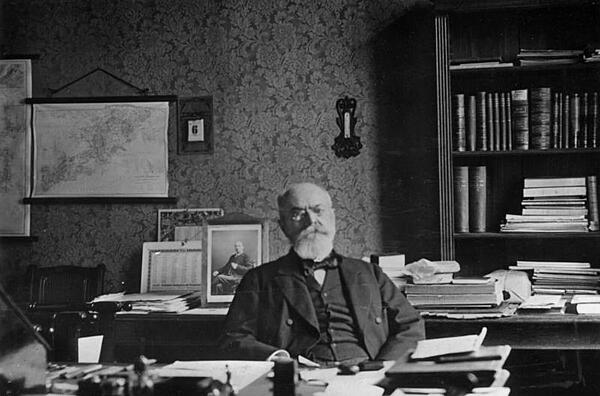Friedrich von Holstein
Friedrich von Holstein was the head of the political department of the German foreign office. He is remembered for the major role he played in shaping the foreign policy in the years before World War One. He warned that rapid naval expansion and Germany’s increasing imperial ambition would lead to conflict with the other major European powers.
Born in 1837 to a minor official in the Prussian court, Hilstein was introduced from the military at an early age. In 1863, he joined the diplomatic service and worked in capitals across Europe. He was appointed to the foreign ministry’s political division in 1876.
At first, Holstein was a firm supporter of Bismarck. However, Holstein came to disagree with the Bismarckian approach to alliances. He felt that Germany was limited by the countries she was allied with. Instead, he wanted Germany to have the freedom to drop such connections when it suited her. Following Bismarck’s dismissal, Holstein tried to sever Germany’s diplomatic connection to Russia.

Holstein was also wary of provoking antagonisms in Europe. He knew that a colonial policy and the rapid expansion of the navy would lead to conflict with others. Holstein saw Russia as the greatest threat to Germany’s, but was optimistic about Anglo-German relations.
Holstein’s influence lessened when Wilhelm II ascended the throne in Germany. Wilhelm and Holstein did not agree on the issue of Germany’s navy. Wilhelm believed a powerful navy and ample overseas possessions would turn Germany into a great power, but Holstein disagreed with him.
Wilhelm dismissed Holstein from the foreign ministry in 1906, as he was blamed for Germany’s defeat at the first Moroccan Crisis. Wilhelm was adamant that Germany’s reputation should not be tarnished by such an event, so Holstein had to pay.
Friedrich von Holstein died in 1909.
See also: The Algeciras Conference of 1906
MLA Citation/Reference
"Friedrich von Holstein". HistoryLearning.com. 2026. Web.
